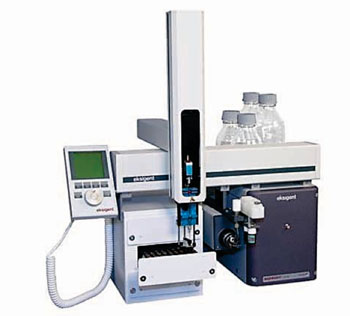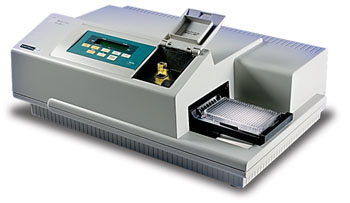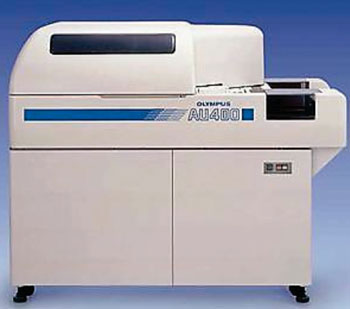Clinical Chemistry
High Plasma Cortisol Levels Associated with Global Cognition Deterioration
Healthy older people with high plasma cortisol levels show a significantly greater risk of the presence of beta-amyloid in the brain, in addition to greater declines in global cognition over 54 months, compared with those with low cortisol levels. More...17 Aug 2016
New Immunoassay Analyzer Introduced at 2016 AACC Annual Meeting
The recently renamed medical instrument manufacturer Siemens Healthineers (Erlangen, Germany) chose the July 31 - August 4, 2016, AACC Annual Meeting & Clinical Lab Expo (Philadelphia, PA, USA) as the venue for introducing its new Atellica Solution automated immunoassay and clinical chemical analyzer system. More...12 Aug 2016



Human Seminal Plasma Fructose Determination Method Validated
Human semen is the secretion of the male reproductive organs, containing sperm cells and seminal plasma (SP), a complex mixture of testicular, prostatic, and accessory gland secretion that provides biochemical support for ejaculate function. More...09 Aug 2016
In Other News
Proteome-Based Marker Classifies Chronic Kidney Disease Progression
Exposure to Toxins in Children Associated with Kidney Disease Biomarker
Common Circulating Cell Clusters in Cancer Patients Characterized Anew
Low Selenium Levels Linked to Liver Cancer Development
Lipoprotein-Associated Phospholipase A2 Tests Help Diagnose Heart Disease
Heart Transplantation Recipients Unaffected by Donor Troponin Levels
Plasma Mannose Levels May Indicate Diabetes Risk
Index Identifies Women at Risk for Rapid Bone Loss
High Blood Sugar Associated with Lower Risk of Benign Tumors
Highly Accurate Method Developed Predicts Postpartum Diabetes
Cardiac Biomarker Increase Associated with Higher Risk of Heart Disease
Testosterone Reference Ranges Vary Widely in Medical Laboratories
Reproducibility Of Stored Serum Potassium Values Analyzed
Urinary Round Cells Predict Need For Hemodialysis
Breath Analysis Aims To Reduce Unnecessary Antibiotic Prescriptions
Breath Test May Improve Lung Cancer Screening and Monitoring
Additional Hormone Measurement Reveals High Risk Of Preeclampsia
Urine Tests For Dehydrated Older Adults Questioned
Handheld Device Detects Heart Attacks
Blood Metabolites Tests Helps Tailor Cancer Treatment
Urinary Biomarkers Diagnose Preeclampsia
Blood Test Uncovers Undiagnosed Diabetes In Hospital Patients
New Therapies for Parkinson’s Disease More Effective at Early Stages of Diagnosis
The Clinical Chemistry channel updates the reader on tests, techniques, and research in the field - from routine assays to specialized tests on blood, urine, enzymes, lipids, hormones and more.










